Nice
8 Ways to Reignite the Spark in Your Relationship

Many of the things that once seemed precious to us, such as working from home and spending more time with our partner or family, can be more difficult than we thought. Getting stuck in a routine, a lack of space of our own, or too little time for friends or ourselves can be some of the consequences of spending too much time with our partner.
1. Don’t neglect family and friends.

Being in a couple offers a sense of comfort, and because of this, other relationships may get neglected. This can generate “codependency,” wanting everything to revolve around the partner to the point that you isolate each other from your social, work, and family lives. Some of the traits of a person with a tendency to be codependent are fear of loneliness, anxiety, obsessive thoughts, panic about breaking up, and more.
For this not to reach a harmful level, such as communicating only with that person, putting aside personal dreams, work objectives, and other effective relationships, it’s necessary to recognize this in time and not to leave everything else that is also an important part of life behind.
2. Instead of assuming, it’s better to ask.

It’s good to reflect on what our partner needs, what can help them, and how we can make them a little happier. But many times, we can have the wrong idea of what the other wants or requires, and that can be avoided in a very simple way: by asking.
Saying something like, “What do you need?” or “What irritates you about me?” or “How can I contribute to your happiness?” can open an enriching dialogue for both of you and help you to avoid unnecessary discussions.
3. Try to understand the reason behind your boredom.
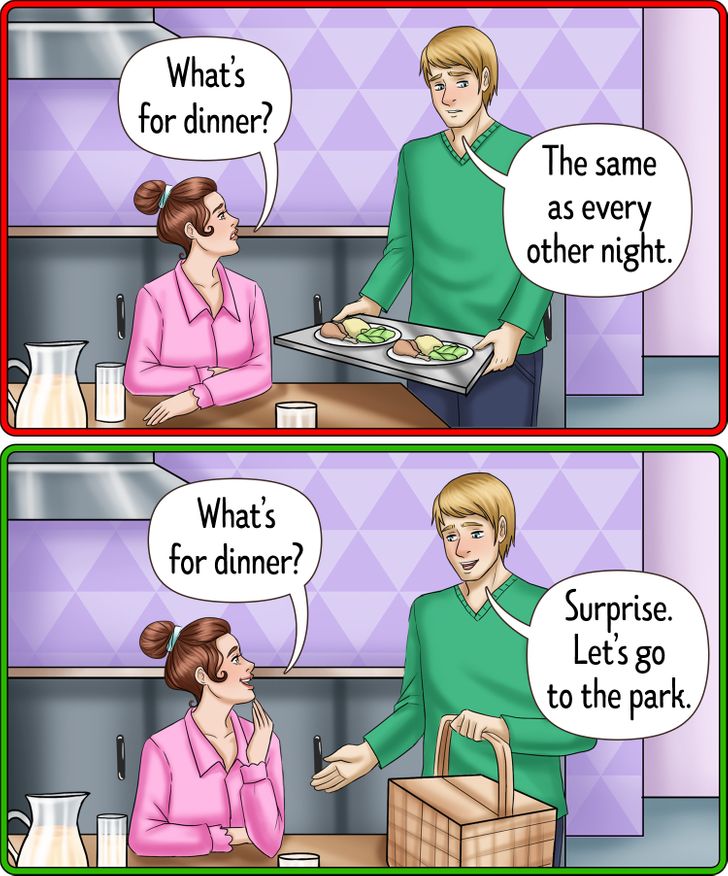
The feeling of being bored is sometimes subtle, and it’s difficult to recognize whether we are actually bored or not. But this feeling can appear in other forms that are easier to identify, like anger, irritation, or less attraction. If this starts to happen, a good exercise is to ask ourselves what the inner reasons may be that make us feel this way and whether routine tasks or boredom is lurking.
Some solutions for this can be:
- Resuming activities that were liked by both of you and, for some reason, stopped taking place
- Being creative romantically
- Doing nice gestures for each other
- Escaping somewhere for a few days
The ways to break a routine are as varied as one wishes.
4. Find a balance between time with your partner and time alone.
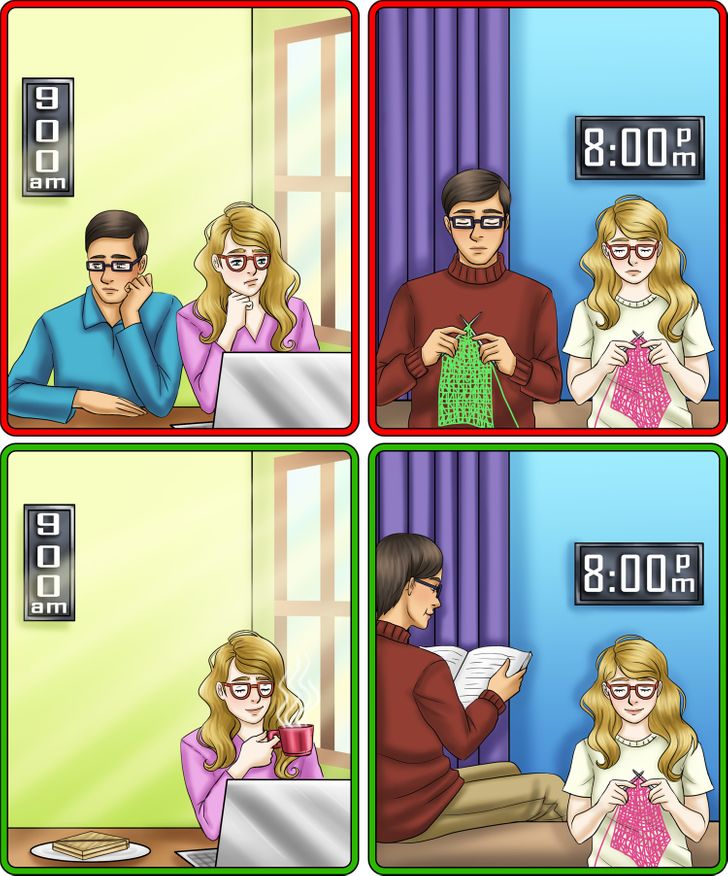
Spending a lot of time together can lead to sharing activities that, perhaps, if you had a choice, you would prefer to do separately. This is not due to a lack of affection for your partner, but rather, that there are things that you simply prefer to do alone or with other people around you. That’s why it is important to find out which things you prefer to do together and which you don’t.
Daily domestic activities, such as folding laundry, tidying up, or taking the dog out, can also be ways to be alone for a moment. That is, if physical separation is possible, all the better. This will balance the time spent together and the time spent apart, and this “distance” will make the partners miss each other, bringing excitement to their reunion.
5. Cope with bad situations with humor.
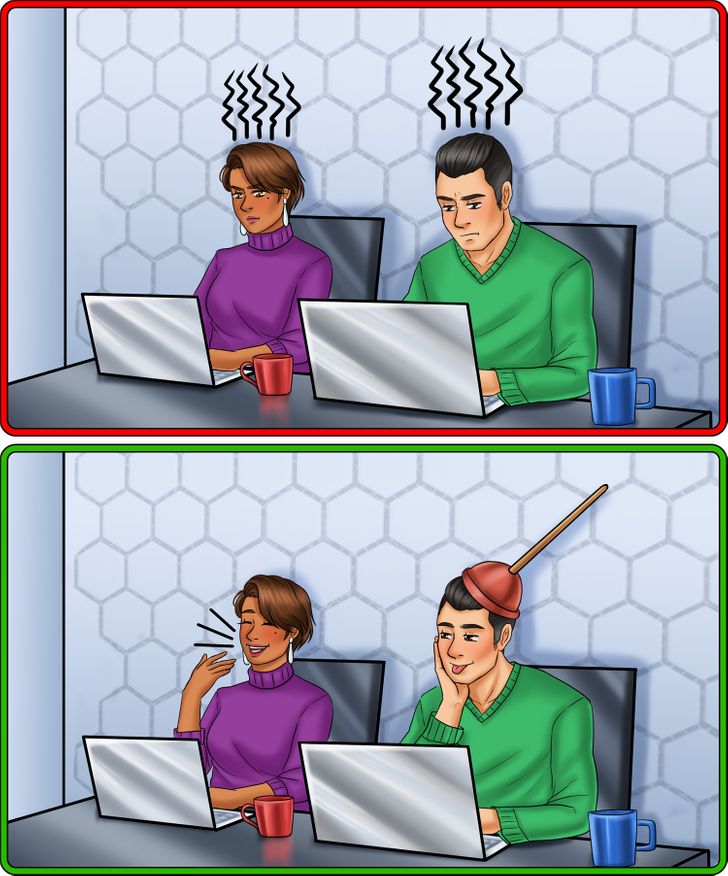
Not only is it important to have fun with friends and family, but it’s also a priority to maintain a good mood between you and your partner. This can be achieved by proposing games, walks, and activities. Even thinking of some simple joke that brings a different mood to the regular routine can help. All this breaks the usual repetition that we become accustomed to, bringing positivity to the environment.
6. Consider individual or couples therapy, if necessary.
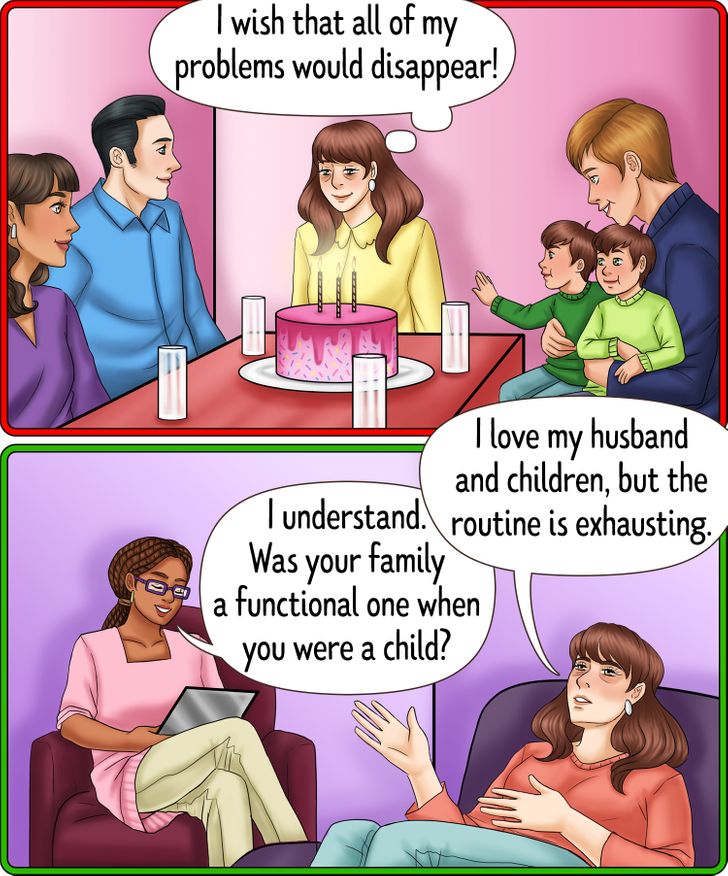
Therapy doesn’t have to be the last option. To some extent, everyone can benefit from having an unbiased observer. Feeling sad, overwhelmed, irritable, or challenged as a couple can be a trigger to think about going to a therapist. They can provide emotional support and certain tools to improve mental health as well as your life as a couple and communication.
7. Invest in “self-differentiation.”

“Self-differentiation” may sound complex, but it means something as simple as “being able to maintain a sense of self, independent of one’s partner.” Those who are still in a relationship can remain themselves, in all aspects, enjoying both partnered activities and solo experiences without feeling like they must “escape” from their environment or something similar.
Investing time in one’s passions and in oneself makes both time alone and time with a partner more enjoyable. Having independent experiences enriches the relationship and brings fulfillment to both the individual and the couple.
8. Focus on the positive things about each other.
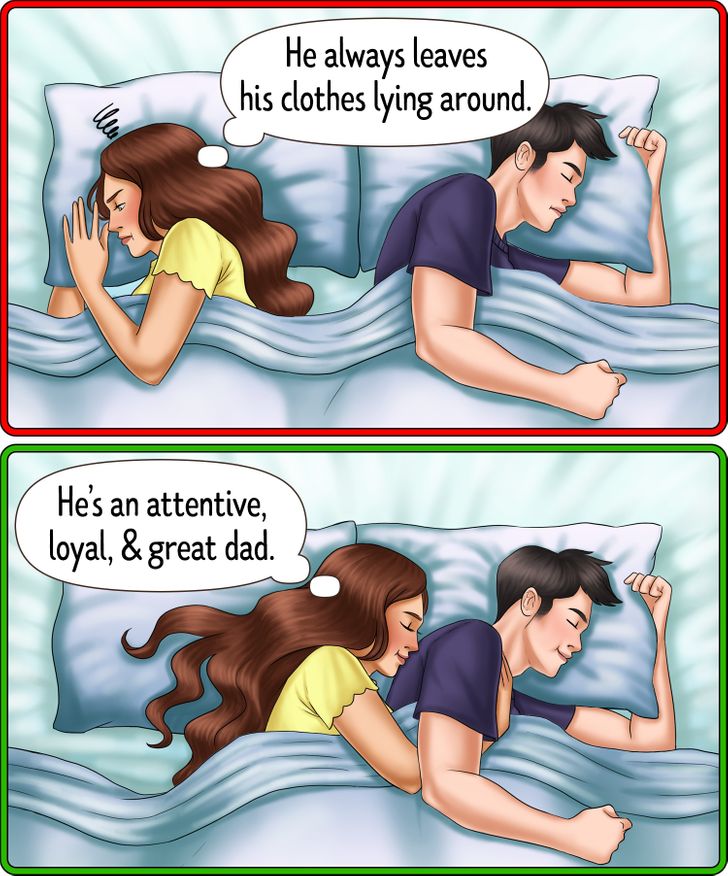
We can often become obsessed with the things our partner doesn’t do so well, and it’s hard to let go of that feeling. Perhaps the problem is a matter of perspective, and one continues to cling to negative thoughts for a variety of reasons. To change this way of looking at things, the following can be tried.
- Change your body language, as this is linked to insecurity and lack of confidence.
- Communicate the emotions that distress you.
- Instead of seeing things as problems, think of them as challenges.
- Express yourself creatively by writing, drawing, dancing, etc.
- Refresh your mind with a walk to get out of your usual environment.
- List everything in your own life that’s worthwhile.
What do you think is the healthiest way to divide your time between family, friends, and a partner? What activities do you like to do alone and what things do you like to do as a couple?
Comments
Related Reads
I Refuse to Let My Brother’s Girlfriend Control My House—I Put a Stop to It Fast

15 Stories That Prove Repairmen Are Full of Surprises

I Refuse to Let My Stepfather Replace My Late Dad at My Wedding

A Stranger Humiliated My Daughter at Disney World—He Picked the Wrong Mom to Mess With

I Lost My Job to “Restructuring” and My Severance Disappeared, Then I Turned the Tables

18 People Who Found Out That Small Acts of Kindness Are the Pathway to Happiness
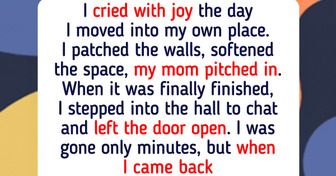
I Posted a Photo During Mental Health Leave—Then HR Called Me In

15 Moments That Prove Kindness Is the Thread Holding Life Together

15 Moments That Prove Kindness Holds Strong When Life Hits Hard

I Refuse to Return to the Office After My Coworker’s ‘Prank’ Revealed His Darkest Secret

I Refuse to Give My Retirement Savings to My Adult Son—I’m Not Responsible for His Failures
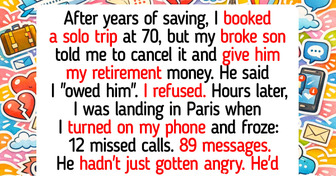
I Refused to Turn Our Romantic Trip Into a Family Vacation and Faced the Consequence


